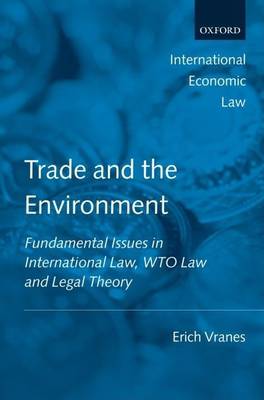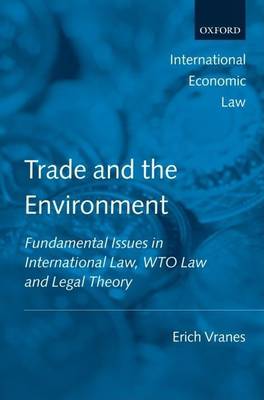
- Afhalen na 1 uur in een winkel met voorraad
- Gratis thuislevering in België vanaf € 30
- Ruim aanbod met 7 miljoen producten
- Afhalen na 1 uur in een winkel met voorraad
- Gratis thuislevering in België vanaf € 30
- Ruim aanbod met 7 miljoen producten
Zoeken
Trade and the Environment
Fundamental Issues in International and WTO Law, and Legal Theory
Erich Vranes
€ 152,95
+ 305 punten
Omschrijving
The relevance of the WTO legal system for environmental protection is a central topic in general international law, WTO law and international environmental law. The relationship between WTO law and international and domestic efforts to protect the environment has moved to centre stage in WTO and international environmental law. It has also spurred the discussion on fragmentation in international law in recent years. This book analyzes these issues by examining the 'horizontal' interaction between WTO law and 'other' international law, the 'vertical' relationship between WTO law and domestic law, and the contents and the interrelations between fundamental provisions of WTO law. This study relies on established insights from legal theory in order to achieve greater clarity in legal argumentation. The main results of this analysis are applied to two topical instances of international regime interplay, namely the relevance of WTO law for international and domestic measures protecting the earth's climate and the ozone layer. A series of controversial topics in WTO and general international law are addressed in this book, including the notion of conflicts of norms, and the resolution of conflicts of norms; the role of international law in WTO proceedings; extraterritorial jurisdiction and unilateral trade measures; proportionality and balancing of interests in international and WTO law; the core disciplines of the GATT and the TBT Agreement; process and production-based measures (PPMs) in WTO law; climate protection, protection of the ozone layer, and WTO disciplines.
Specificaties
Betrokkenen
- Auteur(s):
- Uitgeverij:
Inhoud
- Aantal bladzijden:
- 320
- Taal:
- Engels
- Reeks:
Eigenschappen
- Productcode (EAN):
- 9780199562787
- Verschijningsdatum:
- 25/03/2009
- Uitvoering:
- Hardcover
- Formaat:
- Genaaid
- Afmetingen:
- 236 mm x 160 mm
- Gewicht:
- 847 g

Alleen bij Standaard Boekhandel
+ 305 punten op je klantenkaart van Standaard Boekhandel
Beoordelingen
We publiceren alleen reviews die voldoen aan de voorwaarden voor reviews. Bekijk onze voorwaarden voor reviews.











